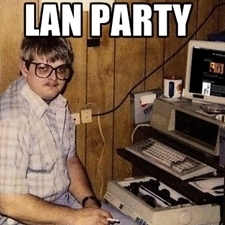What is RAID
-
Featured Topics
-
Topics
-
DietzDiet ·
Posted in Storage Devices0 -
LinuxPiThor ·
Posted in Linux, macOS and Everything Not-Windows0 -
frozensun ·
Posted in Laptops and Pre-Built Systems9 -
8
-
19
-
Vectraat ·
Posted in Phones and Tablets0 -
2
-
superbrett2000 ·
Posted in Cases and Mods7 -
0
-
8
-

![ShayMaster [PC Noob]](http://pbs-prod.linustechtips.com/monthly_2019_03/imported-photo-356881.thumb.jpeg.0683de5a1a8d5dc260e42e06e71039d8.jpeg)
















Create an account or sign in to comment
You need to be a member in order to leave a comment
Create an account
Sign up for a new account in our community. It's easy!
Register a new accountSign in
Already have an account? Sign in here.
Sign In Now